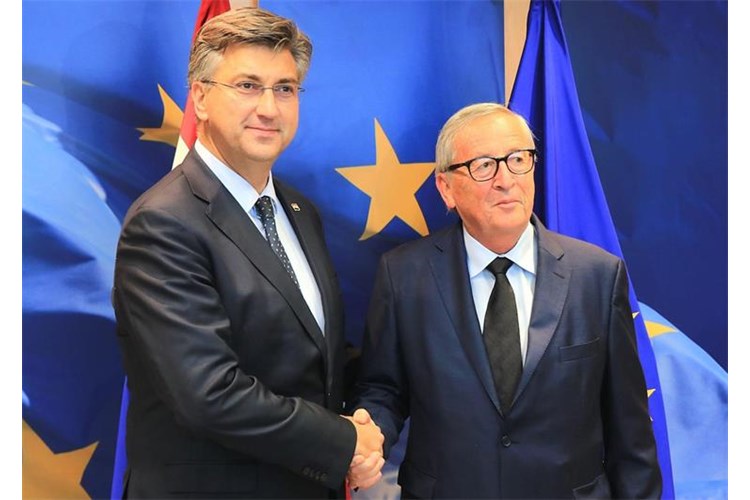


"They can't block indefinitely. We are a member state, we have enough mechanisms. That's all I'll say," he told Croatian reporters in Brussels who asked him if Slovenia could stop Croatia's Schengen Area accession for a long time.
Plenkovic is on a three-day visit to Brussels. Today he met European Commission Vice-President for the Euro and Social Dialogue Valdis Dombrovskis and Finnish PM Annti Rinne, whose country is the current Council of the EU chair.
Plenkovic said he was pleased with Commission President Jean-Claude Juncker's guarantee that next month Croatia would receive a positive assessment on the meeting of the Schengen entry criteria, to be followed by a political debate at the Council of the EU. All member states must approve the accession.
Plenkovic said it was not realistic to expect a decision to that effect during Croatia's EU presidency in the first half of 2020.
"We believe we have met the criteria. Now there will be a political debate, but not during our presidency. The Schengen entry criteria are objective, we have met them, and if there are some political issues, we will deal with them at the Council."
Plenkovic said he did not expect problems from the member states which now were against Bulgaria and Romania entering Schengen. Both have had a positive assessment of their compliance with the criteria since 2011.
Plenkovic said that he and Dombrovskis talked about the implementation of Croatia's euro action plan and preparations for joining the European Exchange Rate Mechanism II.
"The Commission is following in detail what we are doing, and we are doing it within the deadlines we have set, therefore the process if going well," he said, adding that a Commission delegation collecting data as part of the European Semester would visit Zagreb in October.
"I talked about those topics with Vice-President Dombrovskis and the Commission has a positive view of our reform efforts," Plenkovic said.
EC has understanding for special law on Vukovar, says PM
Croatian Prime Minister Andrej Plenkovic said on Friday the government was trying to draw up a law, in agreement with the European Commission, which would bring investors to the eastern town of Vukovar and that there was a high degree of understanding for this in the incumbent as well as the next Commission.
"Our intention is to make a legal framework which would take into account the specificities of the town which was razed to the ground, which is a symbol of Croatia, a symbol of the Homeland War, a symbol of sacrifice and suffering," Plenkovic told Croatian reporters in Brussels.
Croatia wants a law which will allow certain departures from internal market rules that can stimulate investment and Vukovar's development, he said, adding that Croatia was referring to certain precedents. "There are situations, even in Germany's context. We did some digging and found some examples, not identical ones because, luckily for others, they didn't have the situation we did."
Plenkovic said the law on Vukovar's special status was ready but that he would not put it on the agenda before agreeing with the Commission. "We are working on that, the dialogue is intensive and we have a high degree of understanding in Commission President Juncker, and the next Commission President Ursula von der Leyen also has been made aware."
Plenkovic also said he did not expect problems with the Commission regarding the injection of fresh capital in Croatia Airlines. "We explained the situation."
Text: Hina